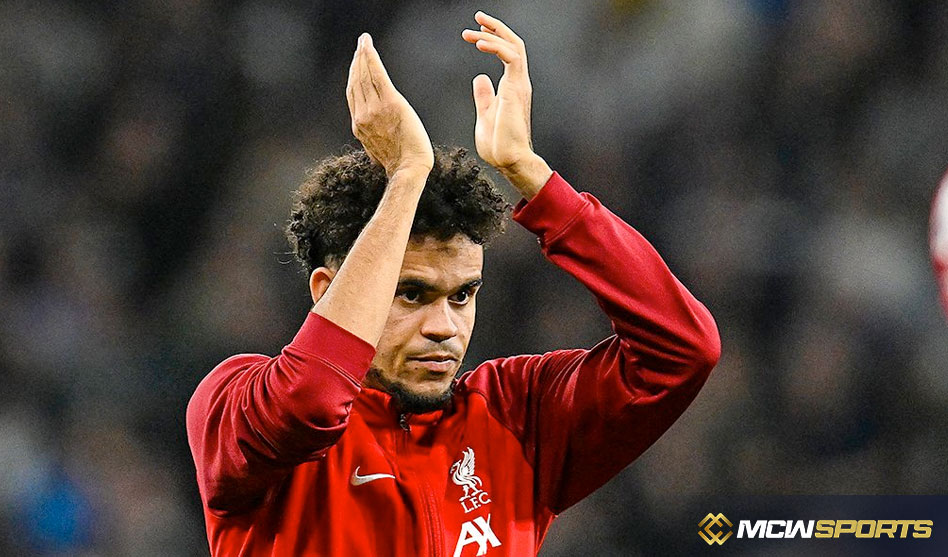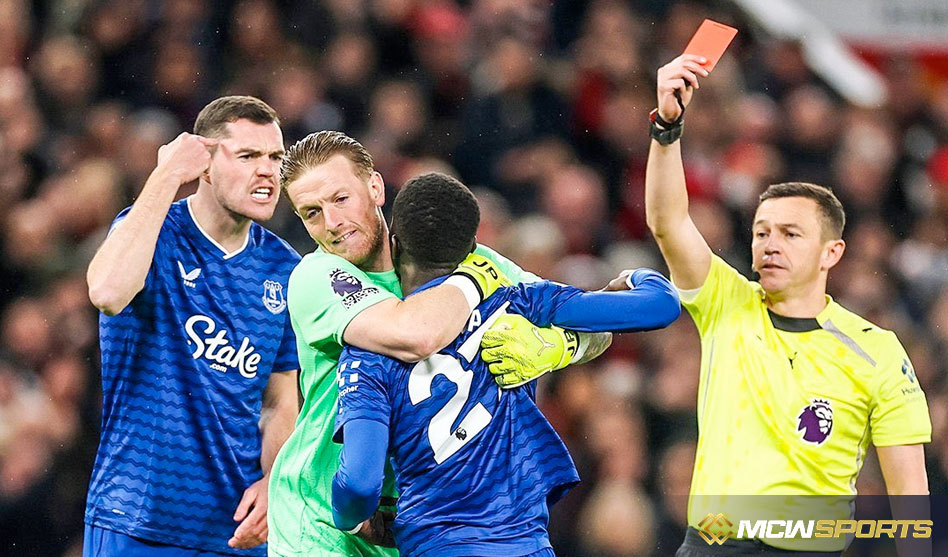This content has been archived. It may no longer be relevant
LONDON, England – Despite the prompt removal of England and the assistant VAR, Dan Cook, from their positions during the games on Sunday and Monday, Jurgen Klopp and the Liverpool players are not comforted by this kind of action. Both have little chance of being chosen in the next match weeks.
The VAR committed a single, glaringly obvious but incomprehensible mistake: he became disoriented while finishing the check, misjudging the on-field choice.
It was immediately plain to the VAR that Diaz was very definitely onside when he turned to look at his position. You may see evidence of this on the VAR broadcast when the technology operator zooms in to place the offside lines in the backdrop as a check.
Because he says those two words, he is telling the officials on the field that their decision is correct. Perhaps the decision was so obvious that England lost focus and forgot what the actual on-field decision was. He was inadvertently alerting the referee that the offside call was accurate when he should have been clearing the goal.
Because the communication breakdown with the referee is the problem, semi-automated offside technology, which Premier League clubs decided against implementing this season, would not have made a difference in this case. Diaz was onside, as England correctly recognized.
The VAR team realized what had occurred seven seconds later. Panic set in, but they made the decision that they could not break protocol and allow the game to continue. However, football would prefer that the VAR deviate from protocol in this case because a very major error was discovered just seconds after the game resumed. This would ensure that the result of the match was as fair as possible. The game ought to have been called off.
The management team, who had the opportunity to intervene and order the VAR team to roll the game back, failed to act as well as the VAR team.
It could have been fixed, but the chance was lost.
The incident’s VAR audio will be made public, which at the very least will make what transpired transparent.
Process errors continue to occur, even at the highest level. The VAR judged that Antoine Griezmann was offside after the kick-off was taken, preventing France from scoring an injury-time equalizer against Tunisia at the World Cup the previous year.
And just a few weeks ago, Sébastien Haller of Borussia Dortmund fouled Heidenheim, resulting in a penalty that was awarded but later overturned for offside.
Haller was replaced, and the VAR discovered that the offside call was incorrect during that time. Haller was removed from the field after being called for pulling back the striker, but the penalty was reinstated. Instead, he received a yellow card while sitting on the bench.
That doesn’t make the events that took place in the Premier League on Saturday acceptable.
The decision to allow England and Michael Oliver to lead a team of English officials to the United Arab Emirates on Thursday to oversee a league match between Sharjah and Al-Ain will be questioned. The officials returned from the UAE on Friday afternoon, so preparation-wise it is identical to a match in the Europa League and Europa Conference League. However, it’s the perception that matters when someone goes to the Middle East to accept a job offer that is authorized and compensated before returning to the Premier League and committing a serious error.
Webb has only overseen the referees for nine months, but already he is dealing with a major issue: the public’s view that refereeing is growing worse. Statistics from the Independent Key Incidents Panel indicate that standards are rising, but egregious errors like the one at the Tottenham Hotspur Stadium undermine whatever advancement that might be taking place.
The impact on England will now be severe, and recovery will be difficult. When The Guardian followed him last season, it was noted that the referee appeared mentally spent following the contentious late penalty that Manchester City received against Fulham. It’s going to get increasingly harder with this.

 English
English










